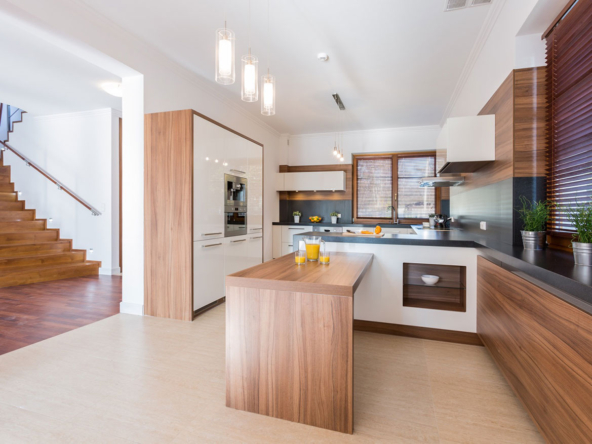Lease vs. Buy: Which is Best for Your Business’s Commercial Real Estate Needs?
When starting or expanding a business, one of the most crucial decisions you’ll face is whether to lease or buy commercial real estate for your business location. Each option has its pros and cons, and the choice you make will depend on various factors, including your business’s financial health, growth potential, and long-term goals. Let’s explore the key considerations to help you make the best decision for your business.
1. The Case for Leasing Commercial Real Estate
Leasing a commercial property can be a smart choice for many businesses, especially those that are just starting out or experiencing rapid growth. Here are some reasons why leasing might be the right move for your business:
Flexibility
Leasing allows businesses to remain nimble. If your business is in a growth phase, leasing provides the flexibility to relocate or expand without the commitment of owning a property. A short-term lease can give you the freedom to upsize or downsize depending on market conditions and your business’s performance.
Lower Upfront Costs
One of the biggest advantages of leasing is that it typically requires much lower upfront costs compared to purchasing a property. You won’t need to worry about a large down payment or the costs associated with maintaining a building, which allows you to preserve capital for other business investments.
Maintenance and Repairs
In most lease agreements, property maintenance and repairs fall on the shoulders of the landlord. This means you can focus more on running your business and less on managing the property. Major structural repairs or renovations, such as roof replacement or HVAC issues, often won’t be your responsibility, reducing the stress and financial burden.
Prime Locations
Leasing can give you access to prime locations that might otherwise be out of reach if you were to buy. Major business districts, downtown areas, or high-traffic commercial spaces can have prohibitively high purchase prices, but leasing can make it easier to position your business in a desirable, high-exposure area.
When Leasing Might Not Be Ideal
While leasing has many advantages, it may not be the best choice for businesses looking to stay in one location for a long time. Over time, leasing costs can add up, and you won’t build equity in the property. Additionally, leasing puts you at the mercy of the landlord. If they decide to increase rent significantly or not renew your lease, you may be forced to move, which could disrupt your operations.
2. The Case for Buying Commercial Real Estate
On the other hand, buying commercial real estate can provide significant long-term benefits, especially for businesses that are well-established and have a clear vision of their future growth. Here’s why buying might be the better choice:
Building Equity
When you purchase a property, you’re building equity over time. This can be a powerful financial asset for your business, especially in markets where property values appreciate. Not only does owning a property give you a valuable asset, but it can also serve as collateral for future loans or business expansions.
Control and Stability
Owning commercial real estate gives you complete control over the property. You won’t have to worry about rent increases or lease terms being dictated by a landlord. This stability can be crucial for long-term business planning. Plus, you can customize the space to fit your exact needs without needing approval from a property owner.
Tax Benefits
There are several tax advantages to owning commercial property. Mortgage interest and property taxes are typically deductible as business expenses. Additionally, you may benefit from depreciation deductions, which can help offset taxable income.
Potential Rental Income
If you purchase a property larger than your current needs, you have the option to lease out extra space to other businesses. This can generate an additional revenue stream and offset your mortgage or operating costs.
When Buying Might Not Be Ideal
While buying offers control and potential financial gain, it requires a significant financial commitment. A large down payment and ongoing costs like property taxes, insurance, and maintenance can strain cash flow, especially for newer or growing businesses. Additionally, owning real estate reduces flexibility. If your business grows faster than expected, selling a property or trying to relocate can be time-consuming and complicated.
3. Factors to Consider When Deciding to Lease or Buy
1. Financial Health of Your Business
The financial health of your business is a critical factor in deciding whether to lease or buy. If you have significant cash reserves and want to invest in a long-term asset, buying may make sense. However, if you need flexibility or want to avoid high upfront costs, leasing can be a better option.
2. Long-Term Plans
Consider the long-term vision for your business. If you plan to stay in one location for many years, buying might provide stability and equity growth. But if your business requires flexibility or you expect significant changes in the near future, leasing will offer the freedom to adapt.
3. Real Estate Market Conditions
Real estate market conditions play a major role in whether it’s better to lease or buy. In areas where property values are rising, buying can be a smart investment that yields long-term appreciation. However, in less stable or overpriced markets, leasing might be more cost-effective.
4. Type of Business
The type of business you operate can also influence your decision. For example, retail businesses often benefit from leasing in high-traffic areas, while industrial or manufacturing companies may prefer buying to accommodate specific facility needs.
Conclusion: Leasing or Buying—Which is Right for Your Business?
Both leasing and buying commercial real estate have their advantages and challenges. Leasing offers flexibility, lower upfront costs, and access to prime locations, making it ideal for newer businesses or those that need room to grow. On the other hand, buying provides stability, the opportunity to build equity, and potential tax advantages, making it a strong choice for established businesses with a clear long-term vision.
Before making a decision, it’s essential to carefully consider your business’s current financial situation, future growth plans, and the local real estate market. Consulting with a commercial real estate expert can help you evaluate all the factors and make the best choice for your business’s future success.
If you’re considering leasing or buying commercial real estate, feel free to reach out for a consultation. I can help you navigate the local market and find the best option to fit your business’s unique needs.


